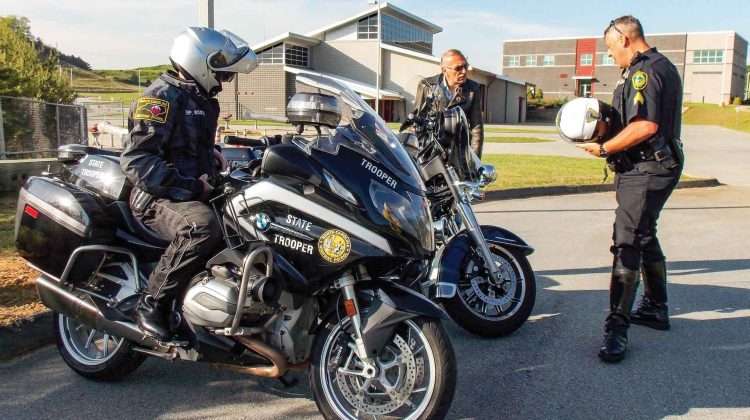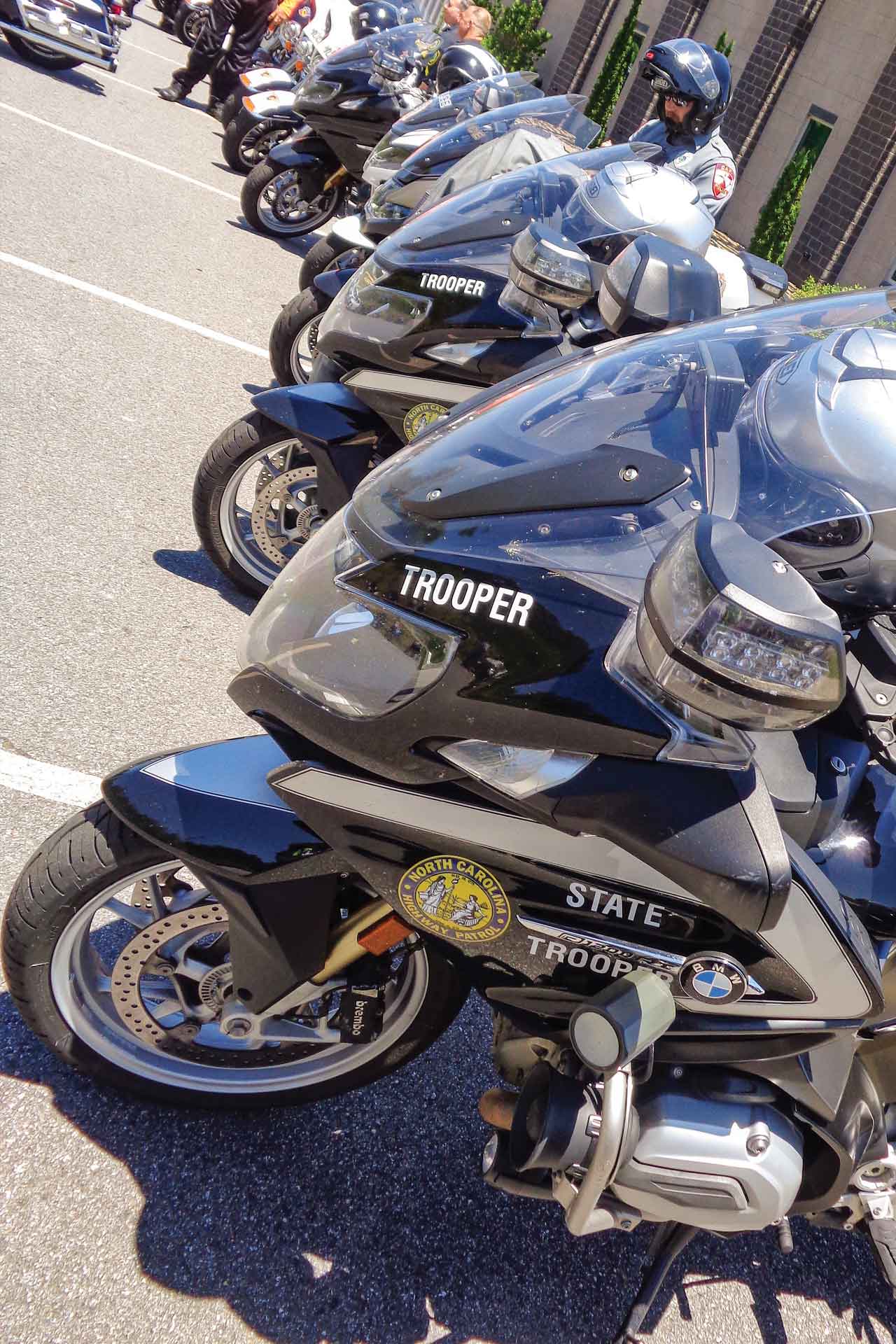
Normally, the sight of a big police bike lingering off my tail light as I finished carving up an enticing set of mountain curves would evoke that panic every rider with a checkered driving record feels, but when we later pulled over, the officer complimented my road position and offered some tips on improving my sight lines in the turns. It’s all part of BikeSafe NC, a free training program for licensed motorcycle riders.
The one-day workshop pairs riders with highly trained motorcycle police officers from across North Carolina — state troopers, sheriff’s deputies and municipal officers — who present both classroom and on-the-road instruction. Unlike the popular MSF Basic Rider course, this instructional program aims more to help experienced riders stay sharp mentally, recognize potential hazards ahead of time, and increase their visibility.
“We did a full curriculum update,” said N.C. Highway Patrol Sgt. James R. Pickard III, the state coordinator for BikeSafe NC. “Now it not only goes over the mechanics of riding, but also encompasses the psychological aspects and some of the subconscious actions we have as riders, and how it affects our riding capabilities in addition to our perception of things.”
The day begins with a classroom session followed by a group ride where an officer observes and — in a friendly and constructive manner — evaluates your riding. After a lunch break, another classroom session and on-the-road ride follow.
“MSF is a great program, and I think everyone should go through it, but it’s totally different from what we do in BikeSafe,” Pickard said.
Even though the presenters are all law enforcement officers, the mood is light and nonjudgmental. These are fellow riders, and that two-wheeled comradery comes through, making for a pleasant and enjoyable day.

I took the BikeSafe NC course several years ago, and found this new curriculum enlightening, offering scientific explanations for what the eye sees and what the mind interprets. In the classroom, I recognized my own observational failings when shown videos that test your awareness of objects and changing environments. The course covers everything from hazard perceptions to being prepared for other people’s actions.
“We’re such a small population, only 2 percent of all registered vehicles,” Pickard said. “They are not used to seeing us on the road. Due to that, it creates all types of issues that we have to handle on our own and being able to coexist and be accountable for our skills, too. Because as you see from the class, we think we’re better than we are, or we create that risk by thinking our capability is better than it is. It’s a compounding problem.”
The participants in my session were mostly middle-aged riders with decades of two-wheeling experience, yet almost all of them found something of value from the day’s training.
“The mechanics, the curve skills are always good to be refreshed on,” Pickard said. “Hazard management and hazard avoidance is always a great thing. There’s nothing here that they can’t benefit from on a yearly basis.”
Modeled after a similar program in the United Kingdom, BikeSafeNC holds workshops year-round across North Carolina. Registration is free. It is currently the only program of its type in the country, although organizers hope to bring it to other states.
“We’re working with numerous states. Right now, the one in North Carolina is the only fully operating BikeSafe program other than BikeSafe UK, We’re working in conjunction with them, but we’re hoping to expand.” Pickard said. “A lot of it comes down to the manpower from the agencies. They have to donate their time to be able to do this.”
To find a class, visit bikesafenc.com.


